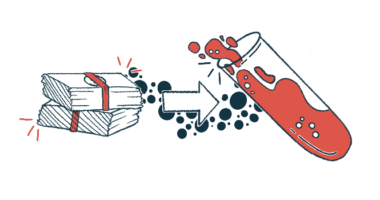Gene Therapy for CMT1B Wins CMT Research Foundation Grant

The CMT Research Foundation has granted over $500,000 to help develop a gene therapy for Charcot-Marie-Tooth disease type 1B (CMT1B).
The grant was awarded to Afrooz Rashnonejad, PhD, principal investigator at the Nationwide Children’s Hospital Center for Gene Therapy and a professor at the Ohio State University’s department of pediatrics.
Rashnonejad has developed a gene therapy that silences the mutated MPZ gene, the cause of CMT1B, irrespective of the type of mutation. Over 200 MPZ mutations have been linked to CMT1B. This gene codes for the myelin protein zero, a critical component of the myelin sheath that protects nerve fibers and speeds nerve cell communication.
“This is state of the art science. Dr. Rashnonejad is a rising star in gene therapy,” Cleary Simpson, CEO of the CMT Research Foundation, said in a press release. “This project may well produce a therapy that works for all or nearly all people with CMT1B, regardless of their specific genetic mutation.”
The gene therapy was designed to deliver a small RNA molecule, called microRNA (miRNA), that can “silence” (or knock down) the faulty MPZ gene. miRNAs bind to a particular gene’s messenger RNA — the molecule generated from DNA and used as the template for protein production — to prevent generation of that protein.
At the same time, it delivers a healthy messenger RNA version of the MPZ gene that is resistant to the silencing action of the miRNAs.
“The idea behind the approach, known as ‘knockdown and replace,’ is to silence the expression of the mutated gene and replace it with a healthy signal, allowing the nerves to create a healthy protein,” Rashnonejad said. “This approach could work for all or nearly all forms of CMT1B, a highly desirable outcome.”
Rashnonejad has designed 11 miRNAs targeting MPZ and conducted lab studies that showed the miRNAs reduced gene activity. This work was done when she was a postdoc in the lab of Scott Harper, PhD, at the Center for Gene Therapy at the Abigail Wexner Research Institute at Nationwide Children’s Hospital.
Harper’s lab specializes in developing gene therapies for neuromuscular and neurological disorders, including CMT and facioscapulohumeral muscular dystrophy (FSHD). During her postdoc, Rashnonejad developed a gene therapy for FSHD using the genome-editing tool CRISPR-Cas13.
Now, as principal investigator herself, Rashnonejad works to determine the safety and efficacy of this potential gene therapy in CMT1B mouse models. She has filed several patent applications, including for the CMT1B-targeted gene therapy.
Rashnonejad is the chair of the American Society of Gene & Cell Therapy (ASGCT) New Investigator Committee and has twice been granted the ASGCT Excellence in Research Award.






